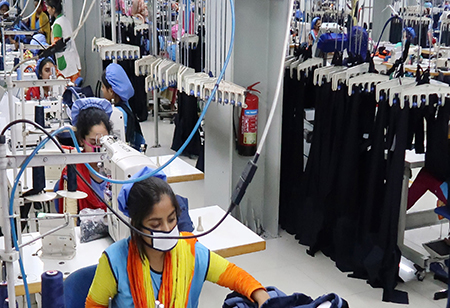Considering the agreement of South Asian Free Trade Area (SAFTA), Bangladesh was given the permission to export more than 60 products including RMG to India with zero duty charged. As per the neighbouring country’s share in the international RMG market it stands next to China. According to the industrial sources, the value of RMG imports from Bangladesh was about $104.25 million in 2014-15 and is estimated to have reached $499.09 million in 2018-19.
However the apparel industrialists are concerned on the practice of the duty free import trade of readymade garments (RMG) from Bangladesh. Taking into account the advantages China has taken of the free merchandising of goods to India. Although, Bangladesh till date has not taken any advantage of the SAFTA agreement, for which its exports to India, especially RMG, grew up to 480% in the last five financial years.
One of the major factors that resulted in static growth in the domestic textile business is this trade done with Bangladesh. Trade advantage and cheap labors are the greatest benefits that Bangladesh rejoices for being one of the least developed countries. These factors have procured it the second position in the RMG exports. As a result to which several large players in the Indian apparel industry established manufacturing units in Bangladesh and involve in exports to countries including India.
But it is observed that China is intruding here and taking advantage of this India-Bangladesh duty free trade. On which Apparel Export Promotion Council Vice-Chairman, A Sakthivel commented, “We learnt that the textile companies from countries like China provide fibre and fabrics to the units in Bangladesh and get them exported as finished goods to India.”
“Indian government imposes GST on the textile goods sold in the domestic market. But without any duty, the same products from Bangladesh reach our domestic market. The cost difference would be 10-15% between both the products. In case of transportation cost from Bangladesh, it would not be much higher, compared to transporting from West Bengal. Despite various representations, the central government was not taking steps to solve the issue,” said south zone secretary of the Federation of Hosiery Manufacturers’ Associations of India Shashi Agarwal.
“The government should imply restrictions and ensure that fibre and fabric utilised for goods imported from Bangladesh is produced and manufactured in that country itself,” concludes Sakthivel.
